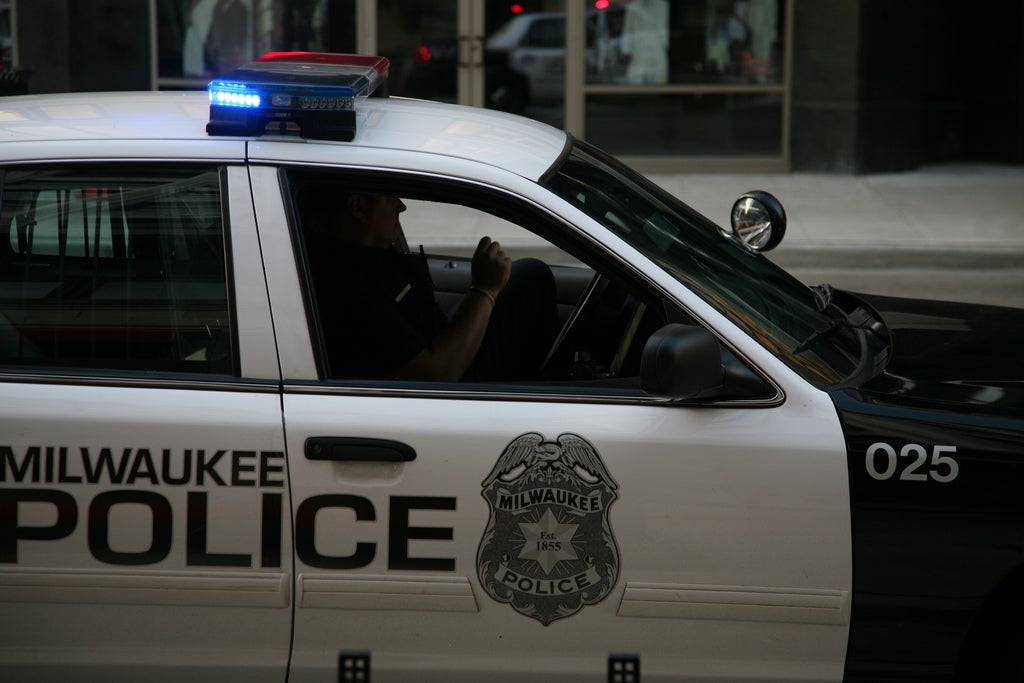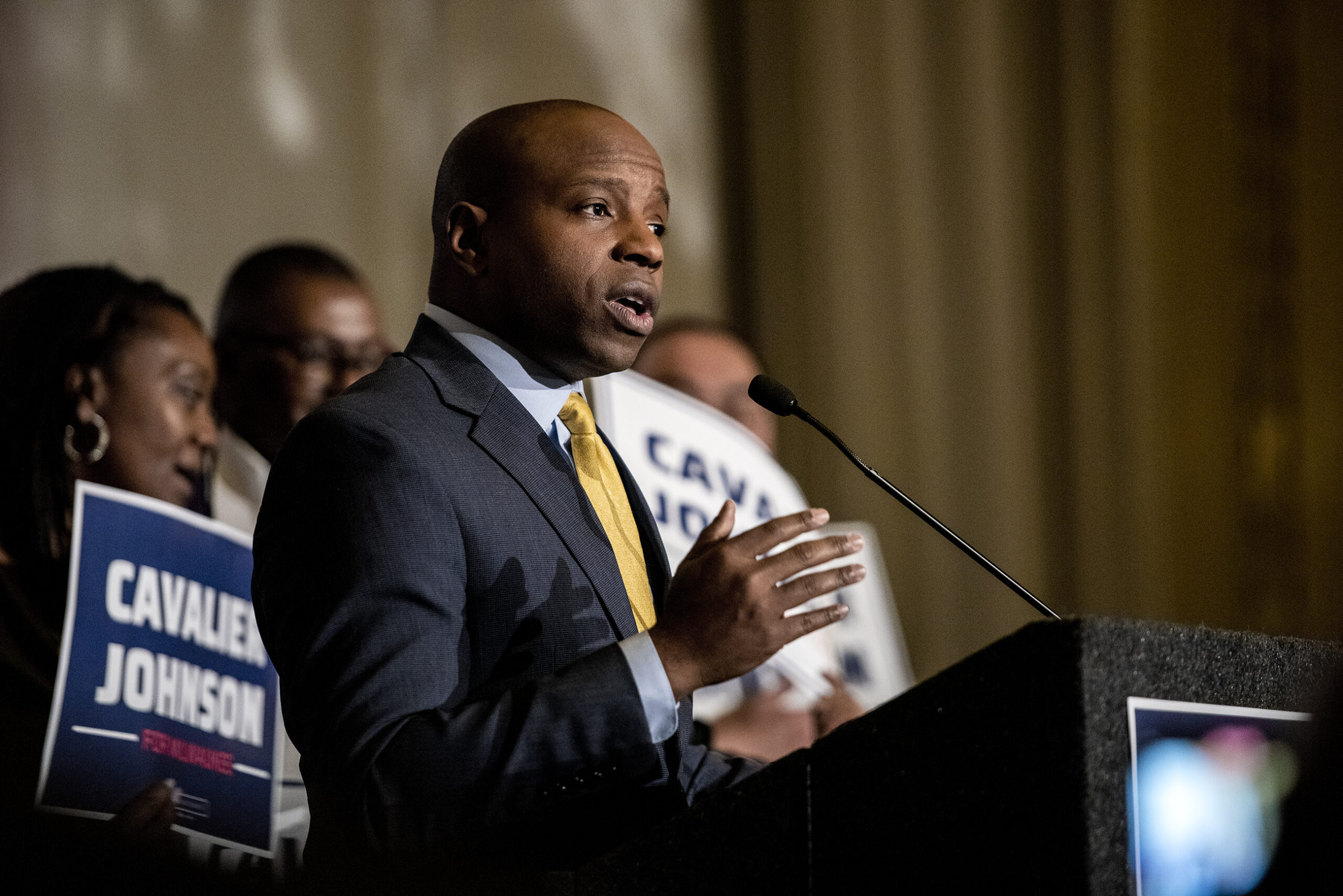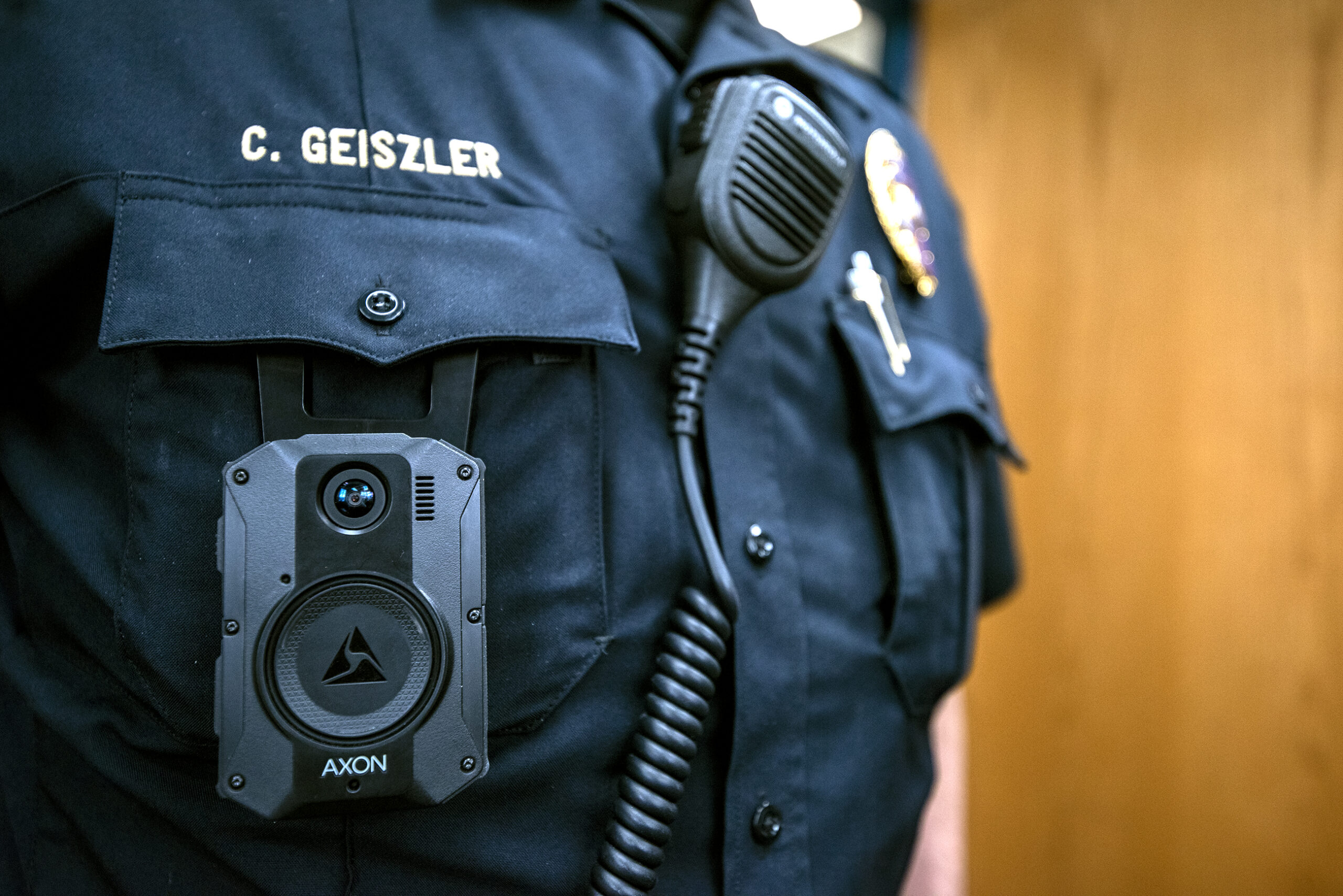The plan to have police officers on street patrol wear body cameras appears to be moving ahead in Milwaukee, despite citizen concerns raised at a meeting Thursday night. Meanwhile, the city of Madison may put the cameras on hold for another year.
The Milwaukee Police Department began experimenting with body cameras about two years ago, and now the department is getting ready to ramp up its efforts.
During an information session Thursday at the Milwaukee mayor’s office, police Sgt. Doug Wiorek demonstrated the new equipment including tiny cameras that can be mounted on eyeglasses, a cap and shoulders. He said Milwaukee officers will not have the option of wearing a camera on their chest, because the view might be easily blocked by arm movements.
Stay informed on the latest news
Sign up for WPR’s email newsletter.
Patrol officers would activate the camera by touching a recording device on their belt as they are investigating a case or enforcing the law. The cameras, Wiorek said, would be turned off in certain circumstances, such as when an officer is interviewing a sexual assault victim who didn’t want to be recorded.
Milwaukee Mayor Tom Barrett said the camera use will be adjusted as needed.
“This is the beginning, the beginning to see how this works and we are further ahead than many communities in the country and we want to get this done right,” Barrett said. “But I think, at the end of the day, that this is going to really be a benefit to the police officers and I think it’s going to be a benefit to the public as well.”
Barrett is asking to spend about $900,000 for 1,200 police body cameras next year, though about 200 officers could start wearing them in just a couple of weeks. That’s despite the city’s Fire and Police Commission not yet approving the department’s proposed body camera policy document.
The commission began hearing about the draft policy Thursday night, after another presentation Wiorek. He showed off the small belt unit that will store the images:
“This will hold eight gigabytes of video, which is basically nine, nine and a half hours worth of video on this device.”
Wiorek said the video an officer records would be kept at police headquarters for at least 120 days.
While a couple of city commissioners expressed support for body cameras, Ann Wilson said she has doubts.
“It sounds very good but I get suspicious of stuff that sounds very good — no I do, I’m not kidding,” she said.
Several citizens who commented at the meeting also voiced suspicion. Mary Watkins said she doesn’t trust the police to discipline officers who are shown by a camera to be breaking department rules or the law.
“What will be the good of paying almost $900,000 for this equipment if there’s the possibility — and I believe a strong one, based on past things that have happened — that the officer will get away with what they’ve done?” said Watkins.
Milwaukee police Chief Ed Flynn said his officers face discipline for any misconduct and that the body cameras will strike a balance.
“We recognize there are competing demands for both accountability and transparency, and this particular technology has been identified as something that offers some promise in those two regards,” said Flynn.
A mayor-appointed advisory committee in Madison isn’t ready to endorse police body cameras. The panel this week voted to recommend at least a one year delay in a local pilot program.
Said committee chair Veronica Lazo, “We’re not saying that body cameras are not going to happen; they will happen at some point but there are underlying issues that we have to work on. And one of the major issues that kept coming up was the trust in the police.”
The Madison City Council will take up the committee recommendations later this month.
Wisconsin Public Radio, © Copyright 2024, Board of Regents of the University of Wisconsin System and Wisconsin Educational Communications Board.





